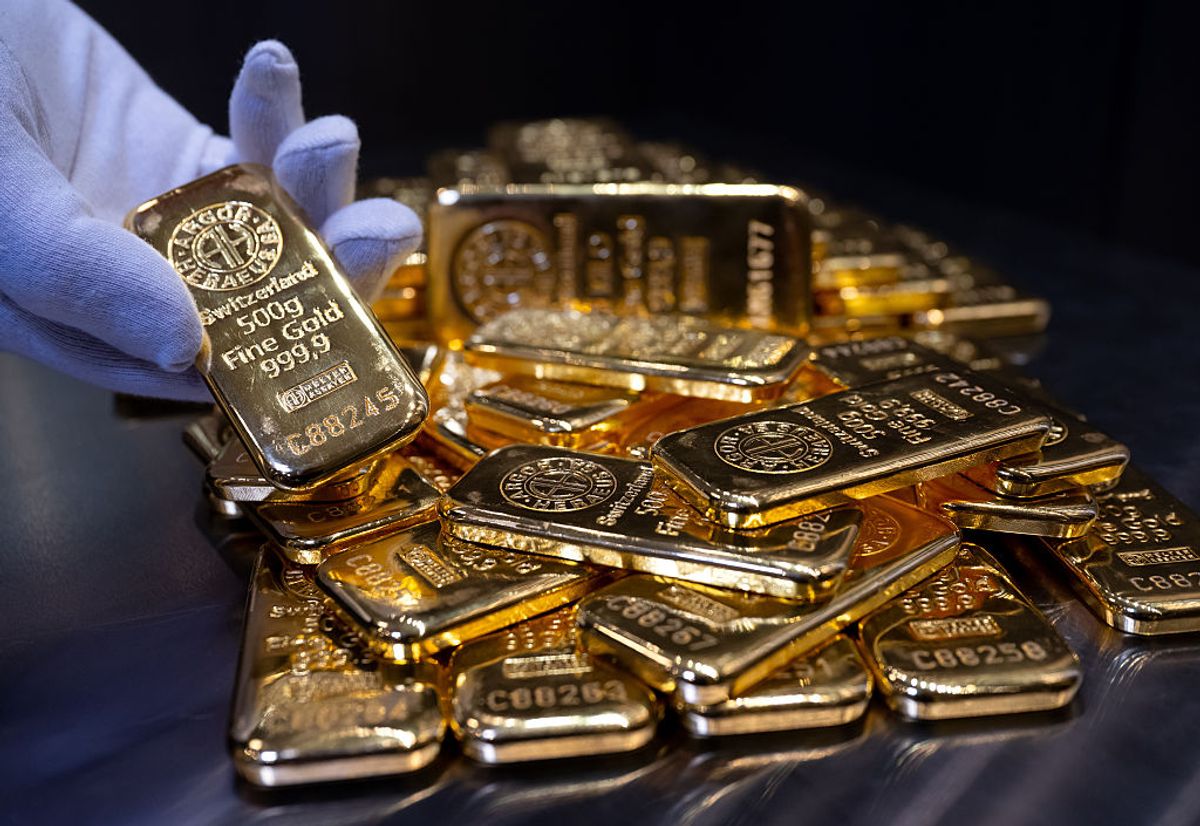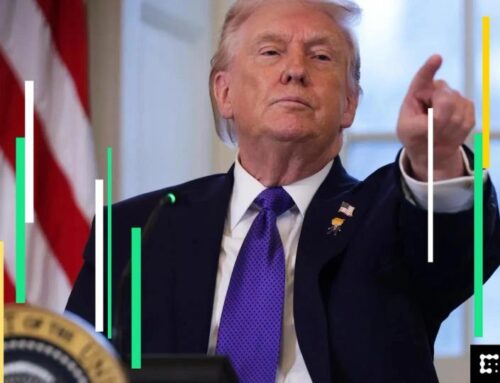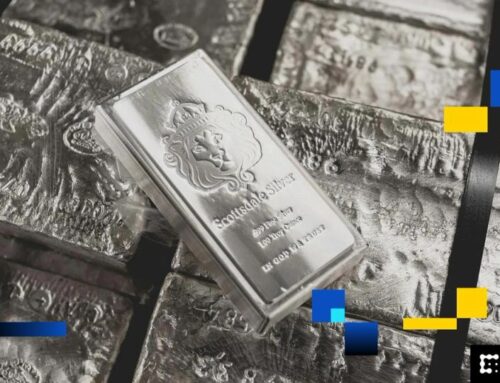You might consider investing in gold right now
April 11, 2025
The metal is a traditional safe haven in an uncertain economy, experts say

Gold bars of various sizes lie in a safe on a table at the precious metal dealer Pro Aurum. (Photo by Sven Hoppe/picture alliance via Getty Images)
}
Gold’s reputation as a safe haven asset has been tested again as global economic uncertainty and geopolitical tensions lure investors toward the ancient precious metal.
Gold reached a record high of $3,177.50 per ounce on Thursday, driven by factors ranging from tariff uncertainty to inflation concerns. U.S. consumer sentiment has worsened significantly in April, with 12-month inflation expectations surging to their highest level since 1981, fueled by concerns over escalating trade tensions and the rising cost of goods.
“Trump tariff uncertainty has added to its rise, as gold shines (no pun intended) in times of market stress and economic slowdowns,” said Maleeha Bengali, managing director of women-focused asset management platform AWAAM Consulting and founder of MB Commodity Corner newsletter. “It is also an incredible inflation hedge, so at times when the market has been going through a bit of stagflation, gold stands out.”
Growing demand
In some ways, gold’s upward trajectory isn’t new. It was fueled by central banks globally as they stocked up on gold reserves after the U.S. froze Russia’s state assets following the invasion of Ukraine in 2022. For central banks navigating complex political dynamics, gold provides a unique advantage: It cannot be frozen or confiscated.
“Gold is one asset that nobody can freeze,” Lina Thomas, Goldman Sachs analyst, explained in a podcast hosted by the firm earlier this year.
Goldman Sachs projected in February that prices could reach $3,100 by the end of 2025 — a forecast that gold has already exceeded.
For everyday investors, gold’s appeal is in its ability to diversify their portfolios and act as a hedge against inflation and market volatility.
“There’s only a certain amount of gold in the world, and it goes up in value when stocks go down,” said Sherry Finkel Murphy, founder of Madrina Molly, an investing financial education community for older women. “Now you can take advantage of that by rebalancing your portfolio.”
How to invest in gold
She recommends looking into mutual funds, which are baskets of investments, and examining commodities within each fund.
“The goal is to sell the profit in the gold and buy the depressed stocks,” she said. “So the benefit of the gold is that it could give you something to rebalance your portfolio, and then when the stock market rights itself, you have all that lovely free money because you purchased it when it was depressed.”
To gain exposure to gold without the complexity of actively managed mutual funds, exchange-traded funds could offer a simpler alternative. The Sprott Gold Miners ETF, for example, has gained 35% year to date.
There are other options for non-traders. “The best way for non-professionals to have exposure to gold is to buy actual gold bars — physical assets one can never go wrong with,” Bengali said.
Regardless of the financial instrument you decide on, the demand for gold is projected to continue to increase, according to the World Gold Council’s latest report.
“Central banks and ETF investors are likely to drive demand with economic uncertainty supporting gold’s role as a risk hedge,” World Gold Council analysts wrote.
Read more
about personal finance
By Daria Solovieva
Daria Solovieva is a veteran business journalist with 15 years of experience writing for leading financial newsrooms globally, including the Wall Street Journal, Bloomberg and Fortune magazine. Her work spans a wide range of topics, including personal finance, economic empowerment, structural inequalities, financial literacy, and the intersection of money and mindfulness. Her upcoming book explores the feminist history of finance.
MORE FROM Daria Solovieva
Search
RECENT PRESS RELEASES
Related Post




